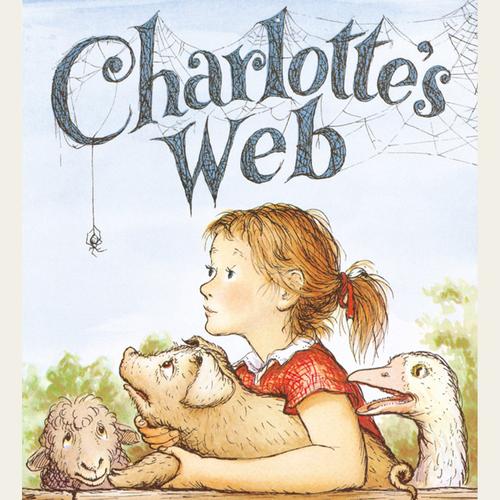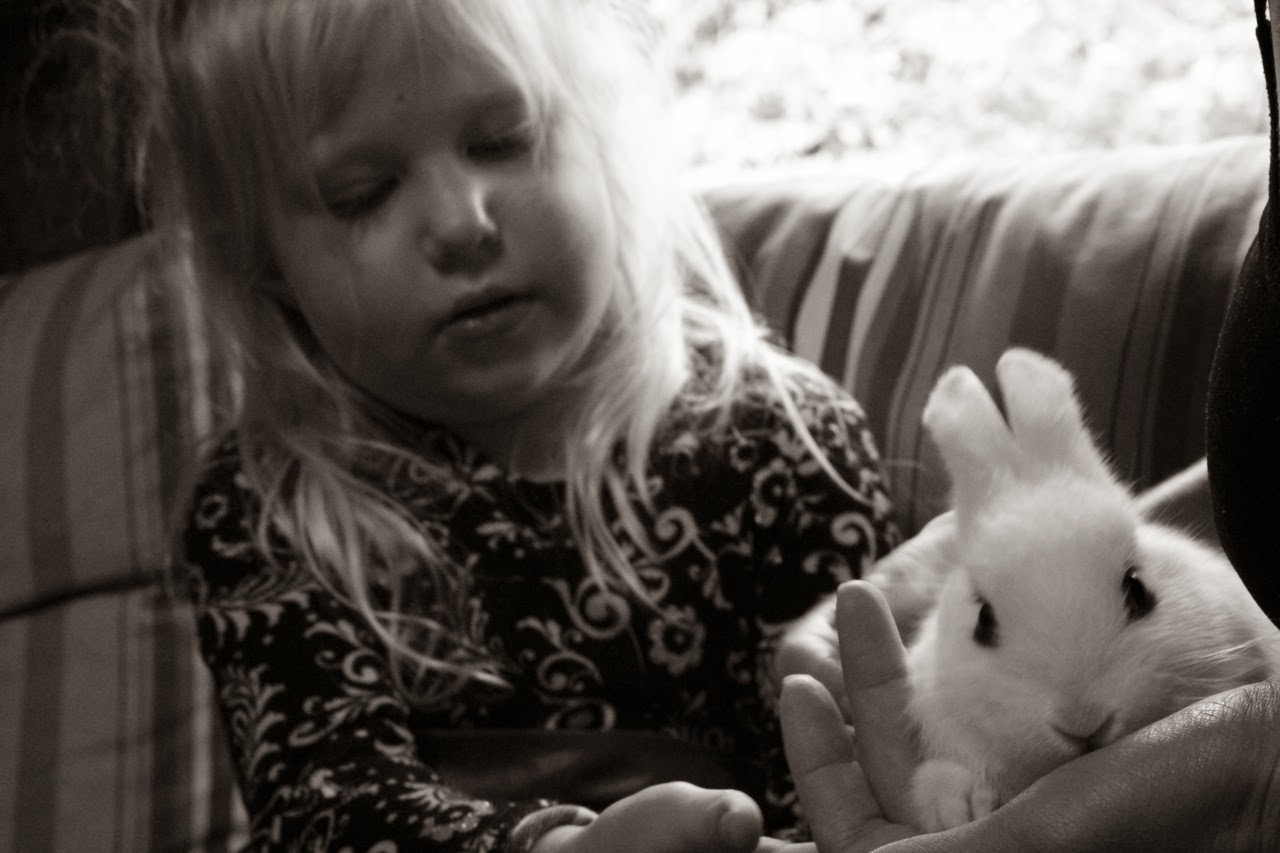The book is almost interesting enough to do a line by line exegesis, but that would bore any reader of this blog silly (even so, it is tempting: consider where I could go with the father's line after Fern convinces him not to kill Wilbur, the runt of the litter: "This morning, Fern went out to right injustice in the world. She came back with a pig." Is there a better expression of the life of those of us trying to work for social change, the contrast between the lofty ideals and the hard, often dirty work of the day to day? But I digress). Instead, I want to focus on one idea, that Wilbur is a special pig, a particularly noteworthy animal, as he is lauded in his special prize at the fair or by all of his fans who come to the farm.
Truth is, Wilbur isn't at all special. He's just a pig. People see him as special because of the work of the invisible Charlotte, who almost literally disappears into the arrow she makes to point at Wilbur. She begins with the very simple descriptor: "Some Pig." The message is superfluous: of course Wilbur is some pig. He is not no pig. The writing in the web merely points to his existence: there is some pig here! However, when the hired man Lurvy finds the writing in the web, he is so stunned by the miracle, that he cannot see the words as just a description. Instead of "some pig [lives here]", the interpretation must be "Some Pig [this is]!"
As Charlotte sees a way to use these words to save Wilbur's life, the writing becomes more and more transparent: she describes Wilbur as "Terrific" and "Radiant" before the final understatement of "Humble." But once again, the truly amazing character in the story, the one who deserves to be lauded as something truly out of the ordinary, is not Wilbur but Charlotte. At one point, Mrs. Zuckerman points this fact out, but very quickly the focus of attention returns to Wilbur.
The references to miracles might make us think that something theological is going on, and it might be interesting to walk down that hermeneutic road. We could see Charlotte as John the Baptist, who appears to have been a much more impressive preacher and political figure than Jesus, but who gets pushed to the back of the official story. Or maybe mention the Rudolf Bultmann's idea that in Christian thought, we are confused by the fact that the messenger is the message: not anything that Jesus says, but his simple being-in-the-world.
There seems to be an easier interpretation, though, given who EB White was: a journalist. Journalists write about other people, and those people get the credit and the fame, while the writer fades into the woodwork. The New Yorker, where White worked, was very clear about effacing the journalist behind the journalism, drawing attention to the message instead of the messenger.
The basic point is what is interesting, though: what makes something special isn't necessarily anything essential to it, but rather what points to it. Wilbur is a spacial pig, but not because he is really more radiant, more terrific, more clever than any other pig. Charlotte points to the pig and says he is special, and because of the miraculous capacity of her writing, others come to see Wilbur as special. When they then treat him as special, he becomes what they want to see in him. Radiant? Well, then we wash him in buttermilk, and he becomes radiant.
Kung Fu Panda does something very similar: the great secret to the Dragon scroll is not some esoteric wisdom that will give Po the ability to fight. It is only a mirror, showing the panda to himself. "There is no special ingredient in the special ingredient sauce," he reflects (upon finding that there is no magical spice in his father's noodle soup). "It is special when people believe it is." With that, Po magically can defeat the great warrior leopard... the story doesn't have as much verisimilitude as Charlotte's Web.
All of this is an empty, if vaguely interesting, interpretation, until we remember that both Charlotte's Web and Kung Fu Panda are directed principally to kids, and only secondarily to intellectual parents looking to find something interesting as they read or watch the stories over and over again. Kids need to see themselves as special: it's the way that they find themselves in a huge and frightening world. In a democracy, however, we can't let accept the specialness of aristocrats or kings, and we are reluctant to upset the delicate equality of people. One solution is that "we are all special," but the son in The Incredibles has an easy response to that: "If everyone is special, then no one is." Charlotte's Web, and to a lesser degree Kung Fu Panda, offer a more interesting answer to kids' anxiety: you are special because someone loves you, because someone sees you as special.
With that, we have to remember the social practice of reading Charlotte's Web. My father read it to me. I read it to Helena. Though some kids may read the book on their own, mostly it is a family event, something that we do together. The effort of reading many pages to a child says "I want to put this much effort into being with you. I like to be with you and tell stories." Both the message of the book and the messenger (the parent reading it) carry the same meaning to the child: "You are special because I love you."
And with that reflection, I think I understand a bit better why I loved the book so much as a child, and why Helena asked me to start reading ti to her again last night.




